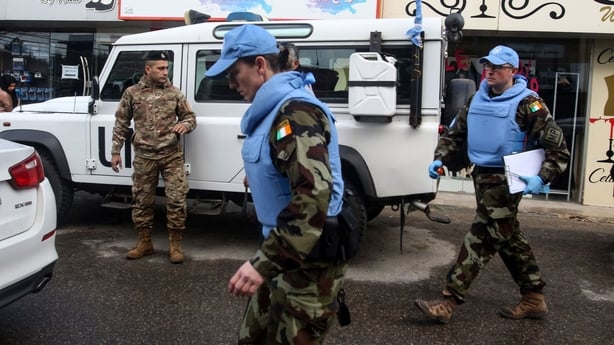The initial phase of a Lebanese criminal investigation into the killing of Irish UN peacekeeper Private Seán Rooney has been completed, the Department of Defence has confirmed.
It is understood that the findings have been referred by the military prosecutor in Lebanon to the office of the state prosecutor.
The 24-year-old was shot and killed last December when the armoured vehicle he was travelling in was attacked in a coastal village in southern Lebanon.
A number of separate investigations were launched following his death, involving the United Nations, gardaí and the Irish Defence Forces.
The incident occurred outside UNIFIL's mandated area of operations and as a result, Lebanese Judicial authorities launched an investigation.
A separate UNIFIL (United Nations Interim Force in Lebanon) investigation was also opened and was completed a number of weeks ago.
In February, a redacted version of these findings was communicated to Irish authorities.
Following this UNIFIL investigation, the UN set up a board of inquiry, led by UN headquarters, which is ongoing.

The Defence Forces deployed a multi-disciplinary team to Lebanon to investigate the circumstances surrounding private Rooney's death.
This work is ongoing and the Department of Defence said that "it is not possible at this stage to say when it will be concluded".
Members of An Garda Síochána were also sent alongside the multi-disciplinary team to "offer advice and guidance" to the Defences forces team in meeting obligations to the State Coroner's Service in Ireland.
A finalised file will be completed whenever a date for the coroner's inquest is set.
A spokesperson for the Department of Defence said that all of these investigations are "different in their objectives and are being undertaken according to their own protocols".







